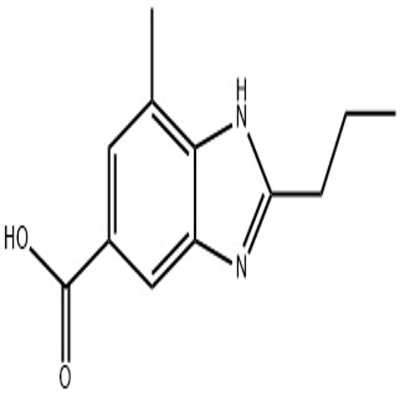-
Categories
-
Pharmaceutical Intermediates
-
Active Pharmaceutical Ingredients
-
Food Additives
- Industrial Coatings
- Agrochemicals
- Dyes and Pigments
- Surfactant
- Flavors and Fragrances
- Chemical Reagents
- Catalyst and Auxiliary
- Natural Products
- Inorganic Chemistry
-
Organic Chemistry
-
Biochemical Engineering
- Analytical Chemistry
-
Cosmetic Ingredient
- Water Treatment Chemical
-
Pharmaceutical Intermediates
Promotion
ECHEMI Mall
Wholesale
Weekly Price
Exhibition
News
-
Trade Service
2-Chloro-4-(2-furyl)pyrimidine is a compound that is commonly used as an intermediate in the production of various chemicals and pharmaceuticals.
The compound is synthesized through a series of chemical reactions, which involve the use of various reagents and catalysts.
The final product is then purified and isolated from any impurities that may have been generated during the synthesis process.
The production of 2-chloro-4-(2-furyl)pyrimidine involves several stages, which can be classified as upstream and downstream processes.
The upstream processes involve the synthesis of the compound, while the downstream processes involve the purification and isolation of the final product.
The upstream processes involve the synthesis of the compound through a series of chemical reactions.
The synthesis of 2-chloro-4-(2-furyl)pyrimidine typically involves the use of various reagents, such as chlorine, sodium hydroxide, and olefin metathesis reagents.
The reactions are conducted under carefully controlled conditions, such as temperature, pressure, and the presence of catalysts.
The synthesis process may also involve several purification steps to remove any impurities that may have been generated during the reaction.
Once the compound has been synthesized, it is then subjected to downstream processing.
This involves the purification and isolation of the final product.
The downstream processing typically involves the use of various techniques, such as crystallization, distillation, and chromatography.
These techniques are used to separate the compound from any impurities that may have been generated during the synthesis process.
The downstream processes are critical in ensuring that the final product is of the highest quality.
By purifying and isolating the compound, the manufacturer can ensure that it meets the necessary standards for use in the production of other chemicals or pharmaceuticals.
Additionally, the downstream processes also involve the packaging and storage of the final product, which must be done in a way that prevents contamination or degradation of the compound.
In conclusion, the production of 2-chloro-4-(2-furyl)pyrimidine involves both upstream and downstream processes.
The upstream processes involve the synthesis of the compound through a series of chemical reactions, while the downstream processes involve the purification and isolation of the final product.
The quality of the final product is heavily dependent on the efficiency and effectiveness of the upstream and downstream processes, which is why manufacturers invest heavily in these processes.





![benzyl N-{2-[4-(4,4,5,5-tetramethyl-1,3,2-dioxaborolan-2-yl)phenyl]ethyl}carbamate](https://file.echemi.com/fileManage/upload/goodpicture/20210823/m20210823171124543.jpg)

